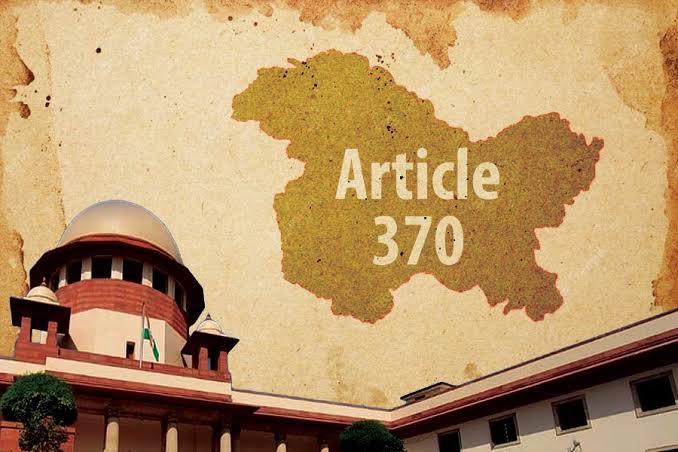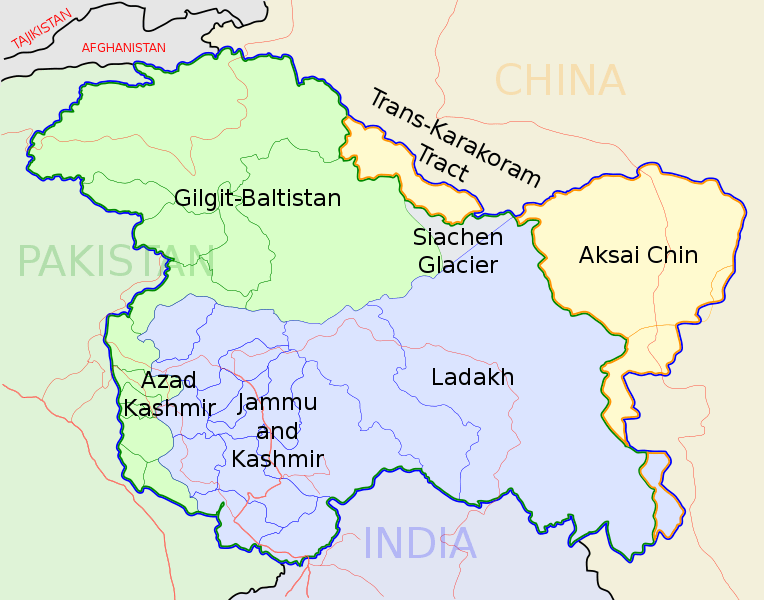
Article 370 A : Introduction
On August 5, 2019, India witnessed a seismic shift in its constitutional landscape as the government, under the leadership of Prime Minister Narendra Modi, took the historic decision to abrogate Article 370 and 35A of the Indian Constitution. This move marked a significant departure from the status quo and had far-reaching implications for the region of Jammu and Kashmir. In this article, we delve into the intricacies of Article 370, the context leading to its abrogation, and the subsequent developments.
Understanding Article 370

Article 370 was a temporary provision incorporated into the Indian Constitution to grant special autonomy to the state of Jammu and Kashmir. Drafted in the backdrop of the Instrument of Accession signed by the Maharaja of Jammu and Kashmir in 1947, this article conferred a certain degree of autonomy to the region, allowing it to have its own constitution and decision-making powers, except in matters related to defense, communications, and foreign affairs.
Article 35A, inserted into the Constitution through a Presidential Order in 1954, granted the Jammu and Kashmir state legislature the authority to define ‘permanent residents’ of the region and accord them special rights and privileges. These provisions, while initially envisaged as temporary, persisted for decades, shaping the unique political and constitutional identity of Jammu and Kashmir.
The Abrogation of Article 370 A
The decision to abrogate Article 370 and 35A was met with both applause and criticism. Supporters argued that it aimed to integrate Jammu and Kashmir more closely with the rest of India, fostering economic development, and eliminating a legal framework that perpetuated a separate identity for the region. Critics, on the other hand, raised concerns about the manner in which the decision was executed and its potential impact on the demographic and political landscape of Jammu and Kashmir.
The government’s move was accompanied by stringent security measures, including the deployment of additional troops and a communication blackout. Subsequently, the special status of Jammu and Kashmir was revoked, transforming the state into two separate union territories – Jammu & Kashmir and Ladakh – directly governed by the central government.
International Response
The abrogation of Article 370 drew varying responses on the international stage. While some countries acknowledged India’s sovereign right to make such decisions within its constitutional framework, others expressed concern about the potential repercussions on regional stability and human rights.
Pakistan, a neighboring country with a historical stake in the Kashmir issue, vehemently opposed the move, describing it as a violation of international law and challenging India’s claim over the entire territory of Jammu and Kashmir. The international community closely watched the developments, urging restraint and dialogue to address the concerns of all stakeholders.
Post-Abrogation Developments
In the aftermath of the abrogation, the government of India initiated efforts to re-establish normalcy in the region. This included steps towards economic development, infrastructure projects, and political restructuring. The restoration of statehood and the conduct of local elections were identified as essential components of the roadmap for the region’s future.
However, challenges persist, particularly in terms of addressing the grievances of the local population, fostering political inclusivity, and managing security concerns. The situation in Jammu and Kashmir remains dynamic, and the success of the post-abrogation initiatives will likely depend on a delicate balance between security imperatives and the aspirations of the people.
Conclusion
The abrogation of Article 370 was a landmark decision that reshaped the constitutional and political landscape of Jammu and Kashmir. It sparked intense debates, both nationally and internationally, and triggered a paradigm shift in the region’s governance. As the consequences of this decision continue to unfold, the focus remains on fostering stability, economic development, and inclusive governance to ensure a peaceful and prosperous future for the people of Jammu and Kashmir.










